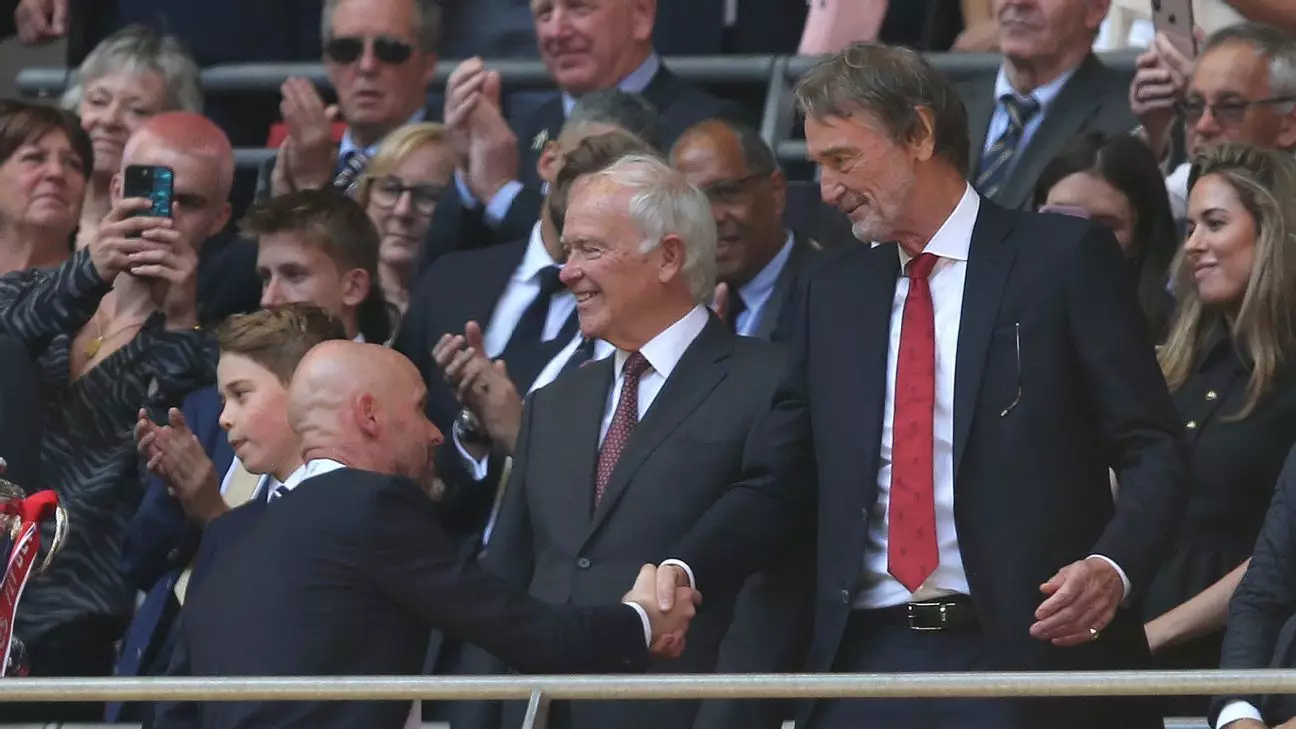Manchester United finds itself at a crossroads, a reality starkly echoed in manager Erik ten Hag’s precarious position within the organization. With an alarming streak of four consecutive matches without victory, the Dutch coach is facing mounting scrutiny. His fate, however, seems to linger uncertainly in the hands of the management team rather than the club’s new co-owner, Sir Jim Ratcliffe. In a recent interview, Ratcliffe explicitly stated that he would not intervene directly in decisions regarding Ten Hag’s future, thereby setting the stage for a potentially turbulent tenure ahead.
Since Ratcliffe acquired a 27.7% stake in Manchester United in February, the club has witnessed a significant restructuring of its governance. Key appointments have been made, including a new CEO, Omar Berrada, alongside sporting director Dan Ashworth and technical director Jason Wilcox. Yet, these leadership changes are cast under the shadow of uncertainty. Ratcliffe noted that this newly formed management team has had limited time to evaluate the club’s direction fully, suggesting that their decisions about the team’s future, including Ten Hag’s status, must be well-considered and deliberate.
Ratcliffe’s emphasis on caution is indicative of a broader trend within football leadership, where rapid changes can have disastrous consequences. In an environment where clear objectives are essential, the urgency to recalibrate and align strategies becomes paramount.
In the face of mounting pressures, the question remains: what does success look like for Ten Hag and Manchester United? Ratcliffe’s ambiguity in affirming his confidence in the coach speaks volumes about the management’s internal struggles. While he acknowledged Ten Hag’s qualities as a coach, he strategically refrained from committing to his continued support. This lack of clarity could spell a challenging road ahead not just for Ten Hag but for the entire club as they grapple with the expectations that accompany a storied legacy.
The upcoming match against Aston Villa is pivotal. It has all the hallmarks of a make-or-break scenario, where the outcome might bear significant weight in the management’s evaluation of the team’s direction under Ten Hag’s stewardship.
Ratcliffe is not shying away from the club’s lofty ambitions; he expressed a strong desire to restore Manchester United to its former glory. His vision is clear and requires consensus across the newly assembled management team. However, with only weeks in their roles, the ability of Berrada, Ashworth, and Wilcox to make informed choices about the team’s strategy and personnel remains an open question.
As Manchester United navigates these turbulent waters, the convergence of legacy, leadership, and performance creates a dynamic and often volatile atmosphere. The coming weeks will likely reveal the true extent of Ratcliffe’s influence as well as the resilience of Ten Hag amidst the undeniable pressures of high-stakes football. The decisions made in this timeframe could not only define the immediate future of Ten Hag but also set the tone for a new era at one of football’s most illustrious clubs.


Napsat komentář